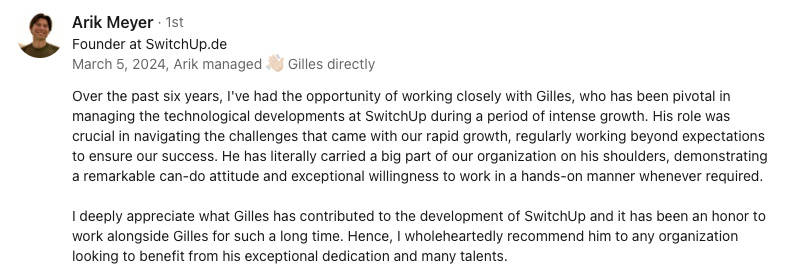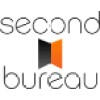Abstract:
Blockchain technology, initially developed as the backbone for cryptocurrencies, has found its way into various sectors far beyond its original application. This groundbreaking technology now plays a pivotal role in enhancing digital trust, revolutionizing supply chain management, and enabling smart contracts and decentralized applications (dApps). Furthermore, it provides robust solutions for data security and identity verification challenges. As industries recognize the potential of blockchain to bring about efficiency, transparency, and security, its adoption is seeing a notable increase. This article explores the diverse and innovative ways in which blockchain technology is being deployed across different sectors, illustrating its impact beyond the realm of digital currencies.
Expanding Blockchain ApplicationsBlockchain technology, once a novel foundation for cryptocurrencies like Bitcoin, has spectacularly outgrown its initial cradle. Far from being confined to the financial sector, it has seeped into diverse fields, revolutionizing how we handle data, contracts, and even our identities. The innovation doesn't stop at creating digital currencies but extends to building a new level of digital trust. This trust is not just about believing in the technology but understanding its capacity to transform traditional processes into more efficient, transparent, and secure systems. The blockchain wave is now washing over various industries, showing that its potential is only limited by our imagination. As we peel back the surface layer of its applications in cryptocurrency, we uncover a vast array of uses that are reshaping the world as we know it.
Revolutionizing Supply Chain Management
Imagine a world where you could trace the origin of your morning coffee back to the exact farm and batch it was harvested from. This isn't a distant dream but a reality made possible by blockchain technology. In supply chain management, blockchain acts as a ledger that is not just unchangeable but also accessible to every participant in the chain. This transparency ensures the authenticity of products, reduces fraud, and significantly cuts down on delays and human errors. Companies like Walmart and Maersk are already harnessing the power of blockchain to track produce and manage logistics, setting a new standard in how we understand product journey and integrity. The result? A far less confusing, more reliable, and surprisingly straightforward process that benefits both businesses and consumers.
Enabling Smart Contracts and Decentralized Applications
Smart contracts, self-executing contracts with the terms of the agreement directly written into code, are another brilliant feather in the blockchain cap. These contracts automatically enforce and execute the terms of an agreement, cutting out the middleman and reducing the need for external enforcement mechanisms. This not only streamlines business operations but also opens the door to a myriad of applications, from automated insurance claims to royalty distributions. Paired with decentralized applications (dApps) that operate on a blockchain network, they offer a new paradigm for building applications that are open, secure, and resistant to censorship. Ethereum, for instance, has become a playground for developers experimenting with these applications, leading to innovations in fields as varied as gaming and finance. The combination of smart contracts and dApps illustrates the dynamic capabilities of blockchain, extending its benefits beyond simple transactions to complex, automated interactions.
Enhancing Data Security and Identity Verification
In an age where data breaches seem to be a regular headline, blockchain emerges as a knight in shining armor. With its decentralized nature and cryptographic algorithms, blockchain provides a robust solution to securing personal and financial data. The technology offers a way to create tamper-proof records of transactions and identities, making it exponentially more difficult for hackers to compromise information. Moreover, blockchain can revolutionize identity verification processes. By allowing individuals to control their digital identities, it ensures privacy and reduces the risk of identity theft. Governments and corporations are already exploring blockchain-based identity systems, which could mean saying goodbye to the myriad of passwords and documents currently needed to prove who we are. This shift not only promises to enhance security but also simplifies and dignifies the process of identity verification.
Driving Efficiency, Transparency, and Security Across Industries
The adoption of blockchain technology across various sectors underscores its role in driving efficiency, transparency, and security. From healthcare, where blockchain can secure patient records and streamline processes, to real estate, where it can simplify property transactions and reduce fraud, the technology is proving its versatility. It's not just about making existing processes faster or more transparent; it's about reimagining how we conduct business, govern society, and even how we trust each other. The blockchain revolution is well underway, with industries recognizing its potential to solve age-old problems and streamline complex systems. As we continue to explore and expand its applications, one thing becomes clear: blockchain technology is not just a fleeting trend but a fundamental shift in how we interact with the digital world. Its journey from a digital currency platform to a multifaceted tool that can address some of the most pressing challenges of our time is just beginning, and the future looks promising indeed.
You might be interested by these articles:
- The Diverse Uses of Blockchain
- Blockchain's Wide-Ranging Impact
- Blockchain Revolutionizing Carbon Offsetting and Renewable Energy





